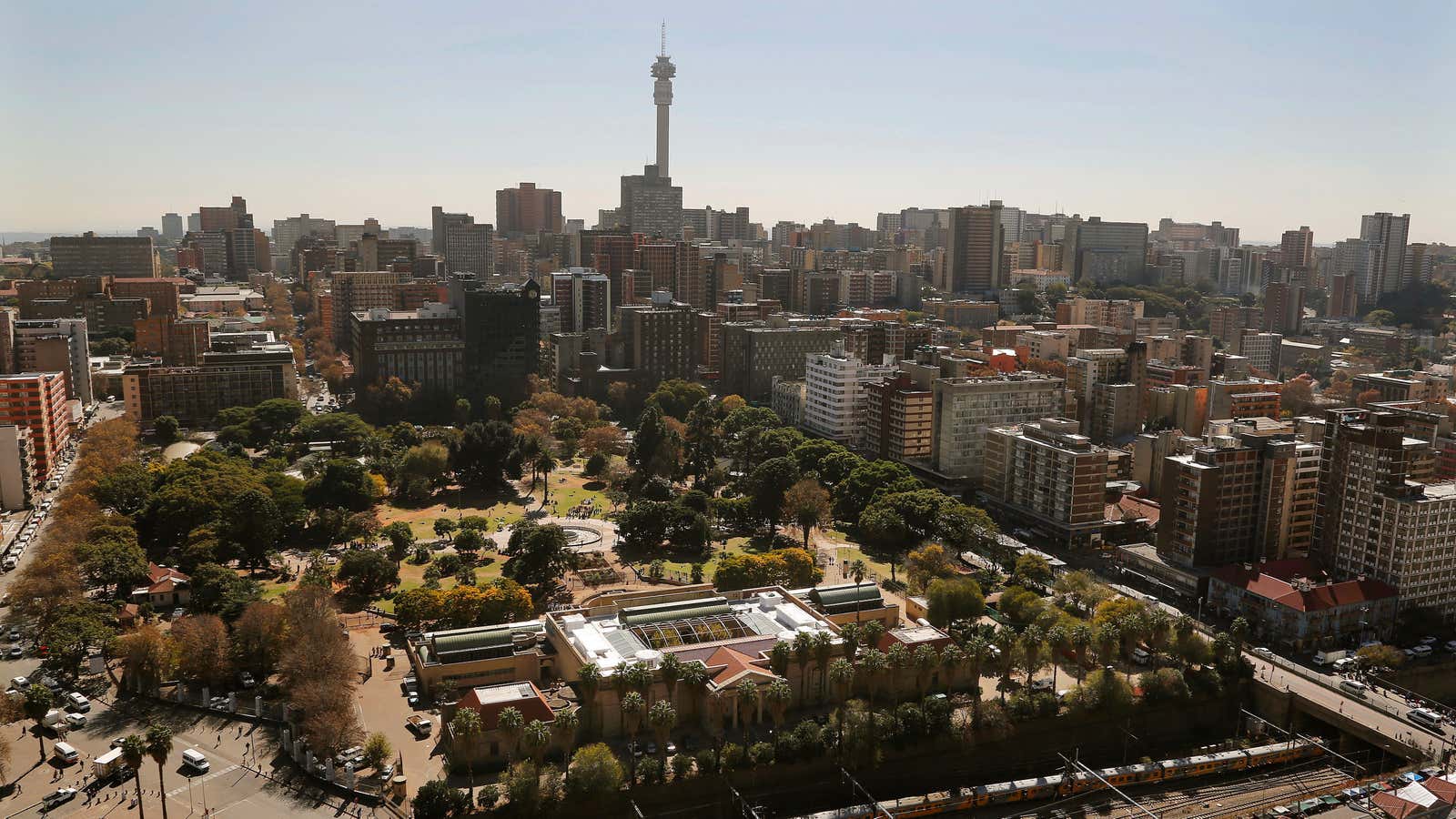As Johannesburg’s mayor Herman Mashaba posed on the rooftop of a newly gentrified building this week, his accompanying social media posts made it clear that this what he wants the heart of Africa’s economic hub to be. To live up to the tagline, “A World Class African City of the Future,” Johannesburg’s poor and African migrant community may have to pay the price.
A week earlier, an image shot from another high-rise nearby showed the city’s streets littered with mattresses, pots and clothes as evicted families scrambled to protect their few belongings. Mashaba and city officials were making good on their promise to step up raids of hijacked buildings in the inner-city.
The mayor’s office has characterized the raids as a “crime prevention operation,” celebrating the dozens of arrests, most of them undocumented African residents who were detained. It isn’t the first time Mashaba has conflated inner-city decay with foreign nationals living here, after he went on a walkabout asking people to show their IDs in a neighborhood known for African immigrants.
“The only reason are vulnerable is because Mashaba thinks people will support him,” said Nomzamo Zondo, director of litigation at the Socio-Economic Rights Institute. “He’s counting on Jo’burgers being xenophobic.”
Zondo has seen dozens of evictions over the years, but says there’s a cynicism to the violent Fattis Mansions eviction that unnerves her. Before Mashaba, the city seemed to be finally playing by the country’s laws that state landlords must find accommodation for people left destitute, irrespective of their citizenship. Mashaba has promised to bring law and order to the city, and it seems he’s not afraid to flout those laws, says Zondo.
“I will do everything possible to provide accommodation. But the City of Johannesburg will only provide accommodation to South Africans,” Mashaba said, according to local radio news network, Eyewitness News. “Foreigners, whether legal or illegal, are not the responsibility of the city. I run the municipality. I don’t run national government.”
Zondo says he’s wrong on this. Mashaba’s legal team, however, may find a loophole in defining the tenants as squatters and have kicked any citizenship issues to the Department of Home Affairs. The businessman turned mayor seems to have sided with wealthy developers who plan to renovate the building by raising the levies, making it unaffordable to anyone living there legally or illegally, says Zondo, who represents the people evicted. Mashaba’s office did not respond to a request for comment.
Johannesburg’s inner-city is in desperate need of a clean-up. In just a few blocks the city’s façade shifts dramatically from polished art-deco office blocks to crumbling vertical slums. Many are hijacked, forgotten by their suburb-based landlords and under control of slumlords. Residents pay out of desperation, foregoing basic amenities like water and electricity.
African migrants flocking to the city are the easiest to exploit because they are simply the foreigners with the most meager economic means. Nationals from Zimbabwe, the Democratic Republic of Congo, Nigeria and more have formed communities in the city center. These networks should have made for a more vibrant, cosmopolitan city, instead they are vilified and made the scapegoat for Johannesburg’s inability to maintain its infrastructure and implement bylaws.
Increasingly the city has seen developments of select precincts with industrial lofts that boast art galleries and trendy restaurants. As these precincts grow, they encroach on any model of a mixed-income housing strategy (pdf) the city has tried to adopt, but now seem abandoned.
These hipster precincts also attract a middle-class clientele trying to reclaim the city. Many earnestly want to live in an international city and are exactly the kind of income the city needs to rebuild. Xenophobic rhetoric disguised as a tough on crime could derail any notions Johannesburg has of being a world class African city, instead fostering spatial apartheid.
“This is test for people in Jo’burg to show we are not those people,” said Zondo.
